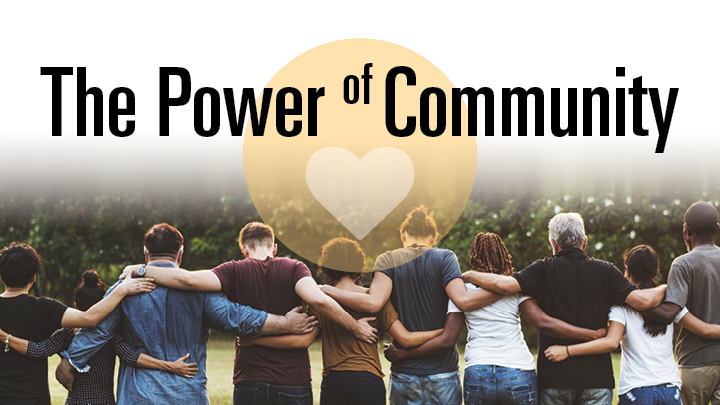The Power of Community

When talking about mental health people often turn to services, stigma reduction, and self-care, but we would like to explore the value of in a broader view comes community care.
What is Community Care?
When talking about mental health people often turn to services, stigma reduction, and self care, but we would like to explore the value of community care. Care from others is just as important and may be more important when self-care is not enough. Community care refers to taking care of people in our communities. It is about finding ways to support each other or helping each other out with the challenges we face, recognizing the social nature of human beings and the importance of being together.
Why is Community Care Important?
A sense of community and belonging plays a powerful role in mental health. It has been shown that people who live in neighbourhoods with higher social cohesion experience fewer mental health problems compared to those living in neighbourhoods with lower social cohesion (Fone et al., 2014). The feeling of social isolation is becoming more common, especially among people living with disabilities, health issues, or other obstacles that can make daily living difficult. This can create an unfavourable environment for the person; however, community care can offer those who face these obstacles with a way to get support and can help reduce stress. Students who experience social or educational pressures may also be more likely to experience isolation and find the support of the community helpful in providing emotional or practical support.
Community care is also valuable in situations when practicing self-care is not enough or not always possible. Although looking after our own well-being and happiness is important, it’s not always enough, which is why community care is so important.
How Can We Create Caring Communities on Campus?
Creating a caring community is about recognizing your strengths and asking yourself what you can do to support others. It is important to understand what we can give and that we may not always be able to provide all types of support at all times (e.g. practical, emotional, or spiritual). Here are some ways we can contribute to a caring community on campus:
- Helping others with practical tasks, such as sharing class notes, bringing snacks to a study session, offering to pick something up from a store, keeping communal spaces tidy.
- Activities that improve well-being and physical health, such as inviting people on a walk with you, respecting sleep schedules of those around you, starting an intramurals team, cooking with or for others.
- Finding ways to connect with others and nurture relationships with people in your life, such as checking in with someone in your community, making time for conversation, eating meals together, hosting a board game night.
- Activities that help you think beyond yourself, such as taking time to listen to the challenges that someone is facing, considering others’ ideas and points of view, continued learning of social issues and unlearning of biases.
What Can Community Care Do?
Reaching out for support and asking for help isn’t always easy. Being aware of this and finding ways to care for others can make it easier for people in our communities to feel supported. We can work together with our teams, housemates, group members, friend groups, and with acquaintances on campus to have more people we can trust and rely on. Small acts of offering support can even help normalize that it’s okay to ask for help from others, working towards a cohesive community.
By: Kiran Verma
Source: Fone, D., White, J., Farewell, D., Kelly, M., John, G., Lloyd, K., … Dunstan, F. (2014). Effect of neighbourhood deprivation and social cohesion on mental health inequality: A multilevel population-based longitudinal study. Psychological Medicine, 44(11), 2449–2460. https://doi.org/10.1017/S0033291713003255
Mental Health & Mental Illness, Relationships
